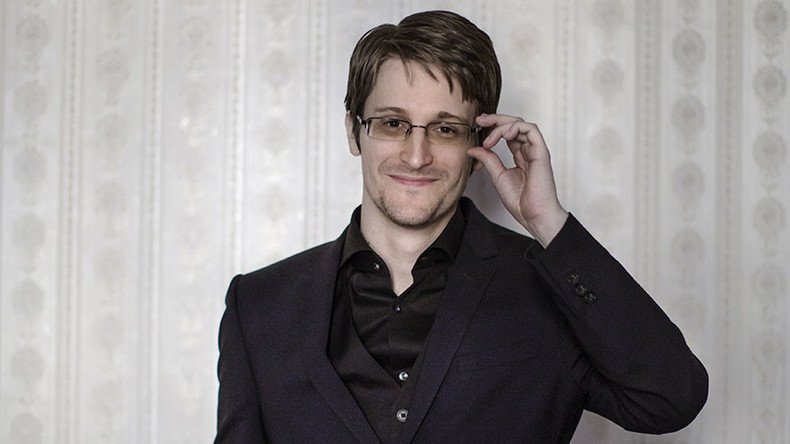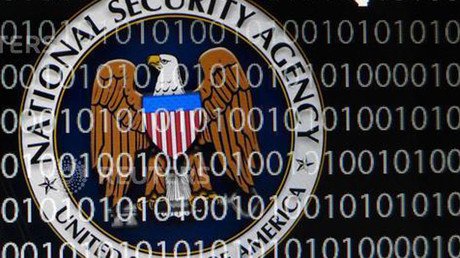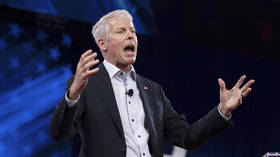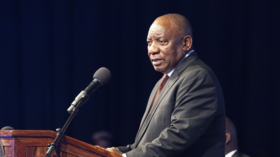‘Snowden changed the course of history’

Thanks to Edward Snowden’s revelations, the US government can no longer directly collect everything that we communicate with each other electronically, Tom Devine, legal director at the Government Accountability Project, told RT America’s Manila Chan.
It’s been three years since initial documents leaked by NSA whistleblower Edward Snowden were published.
RT: Given that this is only the third anniversary since those Snowden leaks, what would you say has changed the most? What has been most affected by these leaks?
Tom Devine: There has been a sea change in the legal roles of the game in the US. The government no longer can directly collect everything that we communicate with each other electronically. That is a major change. What has really happened is that Mr. Snowden changed the course of history, and that is what whistleblowers do.
RT: As much as the current administration harps on being transparent, we know that Obama administration prosecuted more whistleblowers than any other president in US history. The most recent memory that we have is Thomas Drake and Chelsea Manning. Looking ahead, do you see this trend changing in these final months in the Obama administration?
TD: [Former US Attorney General Eric] Holder’s statements last week were extraordinary. He highlighted the fundamental contradiction in whistleblower law and in our democracy – that Mr. Snowden engaged in a “public service,” but that he should go to jail because he committed a crime.
RT: How much weight does that carry now that Holder is out of office?
TD: It gives this tremendous legitimacy for those of us who are challenging that contradiction, when the most recent chief law enforcement officer of the US is putting a spotlight on it. And in a free country it shouldn’t be a crime to be a public servant.
RT: Snowden admits that he broke the existing laws. However, given how Drake or Manning were treated, apparently he felt that he had no other option than to go to the press for that. He knew that what he had to reveal was a bigger crime. But existing laws in the Espionage Act are binary, and he would have been found guilty anyway…
TD: Mr. Snowden was absolutely right that he had no safe legal option. In fact, just a few months before he leaked to the media, the House Intelligence Committee had forced the removal of all whistleblower rights for intelligence community contractors. If they weren’t stripped out of the preexisting law, the intelligence committee threatened to block the defense budget from being enacted.
It was a power grab and it was a way to roll back the free speech rights the people like Mr. Snowden would have had to safely work within a system. But they were stripped away and removed. There is no public interest defense in the Espionage Act either. There is no whistleblower defense against criminal prosecution. In our country ironically you can try to send somebody to jail for the same exercise of free speech for which you couldn’t fire them.
RT: Can there be an argument made for the government prosecuting Snowden and other whistleblowers for revealing state secrets, some of which they claim that those revelations put US military Foreign Service officers at risk both at home and abroad? Is there an argument being made there that there is a risk?
TD: The argument is to have a middle ground that respects both extremes. Of course there is a risk of doing severe damage for any nation if people have the right to hold a press conference about military secrets. But on the other hand, the nation’s defense and safety is endangered if corruption within the military or the national defense bureaucracy cannot be challenged on the grounds of secrecy. The laws that were rolled back and that we’re fighting if the government accountability project had to get restored, allowed you to blow the whistle safely without retaliation through institutional checks and balances – the people who are supposed to be cleaning up the messes in government bureaucracies. But Drake was prosecuted under the Espionage Act for going to the inspector general at the Department of Defense – not officially, but that is what cooked him.
The statements, views and opinions expressed in this column are solely those of the author and do not necessarily represent those of RT.














